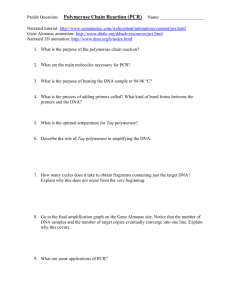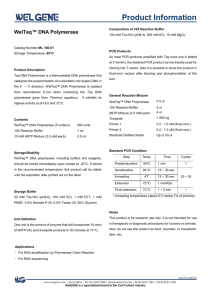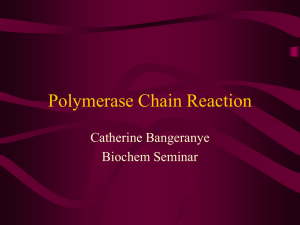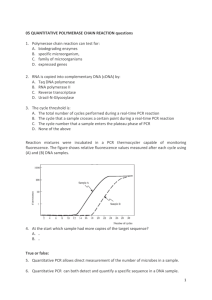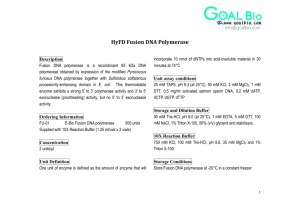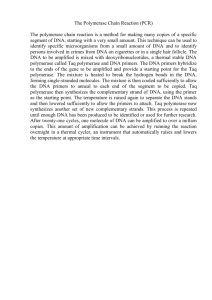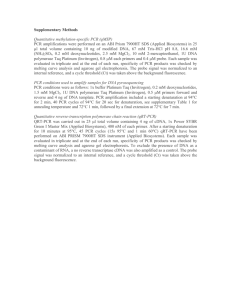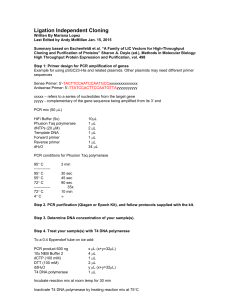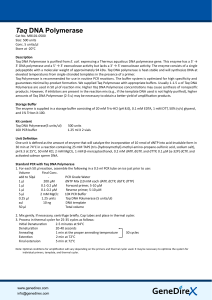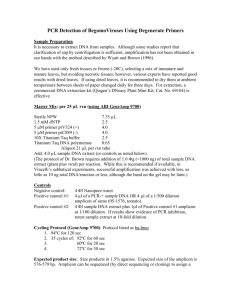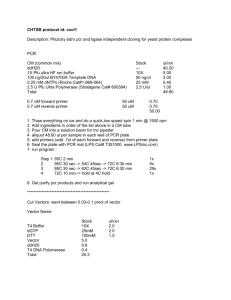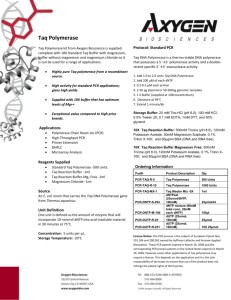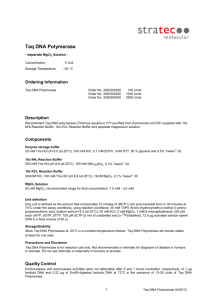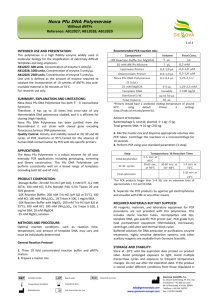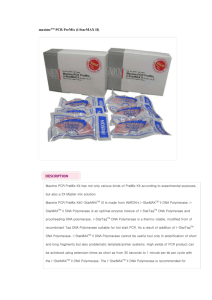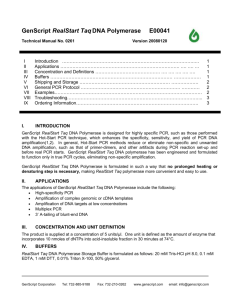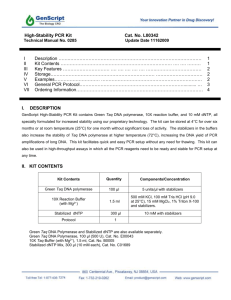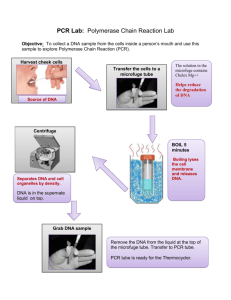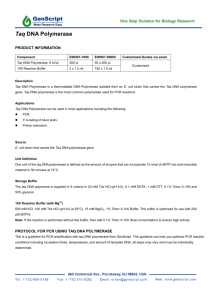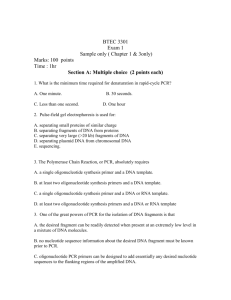Effect of Temperature on DNA Conformation
advertisement
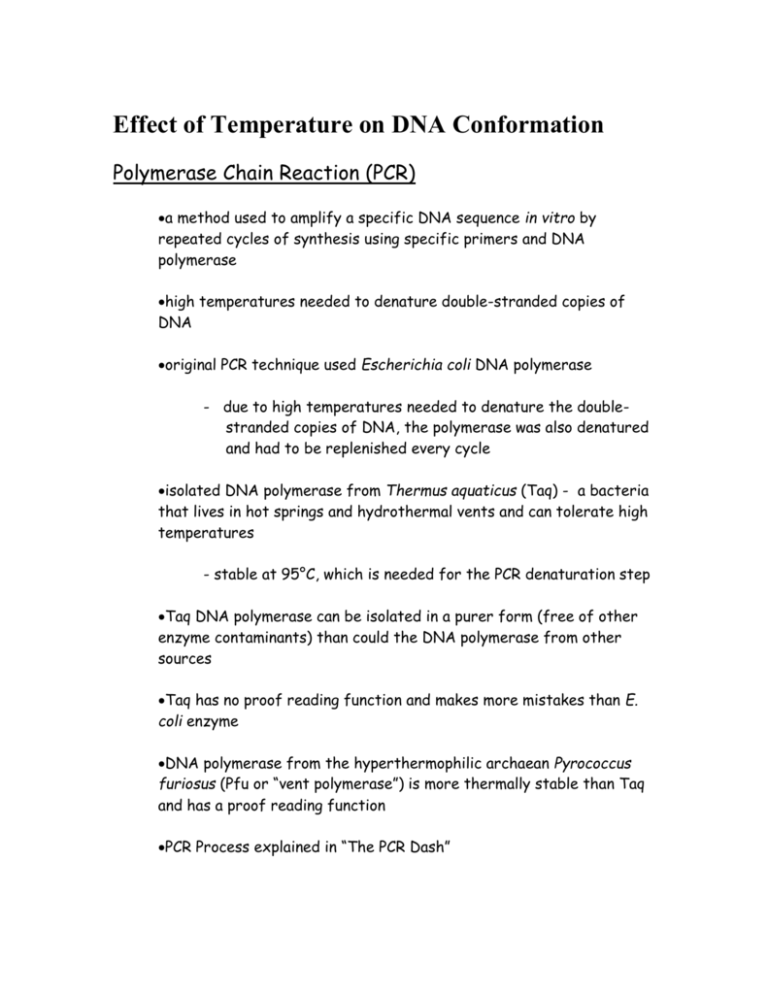
Effect of Temperature on DNA Conformation Polymerase Chain Reaction (PCR) a method used to amplify a specific DNA sequence in vitro by repeated cycles of synthesis using specific primers and DNA polymerase high temperatures needed to denature double-stranded copies of DNA original PCR technique used Escherichia coli DNA polymerase - due to high temperatures needed to denature the doublestranded copies of DNA, the polymerase was also denatured and had to be replenished every cycle isolated DNA polymerase from Thermus aquaticus (Taq) - a bacteria that lives in hot springs and hydrothermal vents and can tolerate high temperatures - stable at 95°C, which is needed for the PCR denaturation step Taq DNA polymerase can be isolated in a purer form (free of other enzyme contaminants) than could the DNA polymerase from other sources Taq has no proof reading function and makes more mistakes than E. coli enzyme DNA polymerase from the hyperthermophilic archaean Pyrococcus furiosus (Pfu or “vent polymerase”) is more thermally stable than Taq and has a proof reading function PCR Process explained in “The PCR Dash”
